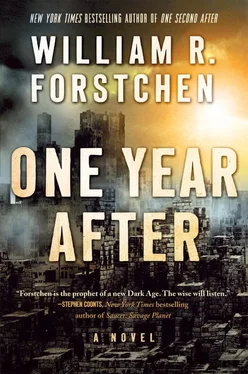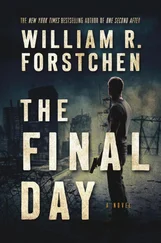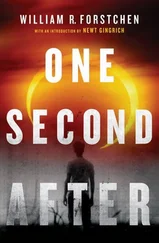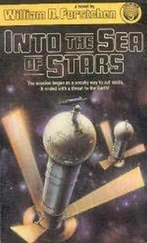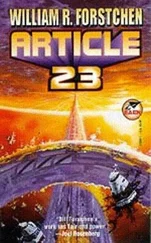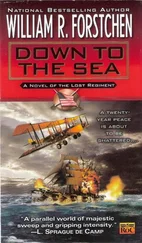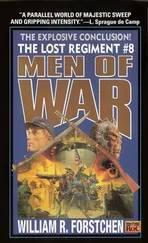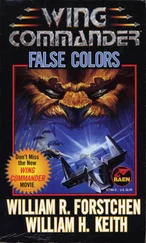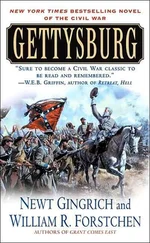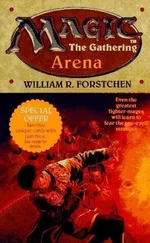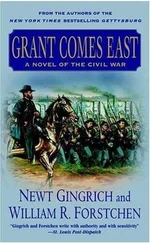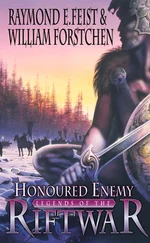Several more tried for a run from the county office. All died within seconds.
“It’s on your soul, Fredericks!” John cried. “And those who stand with you!” He had one flare left. He raised the pistol over his head and fired it off.
A fusillade of fire erupted seconds later from the three-hundred-plus troops deployed around the courthouse. He now wanted to keep his losses at a minimum; it was simply a question of overawing or—if need be—waiting them out unless he received word that Greenville was sending choppers up. He prayed that resistance would collapse before then, that there would be no need for a frontal assault or charge and resulting slaughter out of some Civil War battle or amphibious beachfront attack.
Overawe in the first minutes. Break the will of the jittery ANR troops inside.
With the captured armaments from the helicopter base, there was a surfeit of ammunition for once. A .50-caliber machine gun moved up by a team of Afghan vets to a position on the roof of the BB&T building poured an arcing stream of heavy fire down on the three main buildings of the courthouse complex, incendiary rounds igniting fires in the upper floors of the courthouse. He held back the two dozen air-to-ground rockets designed for the Apaches, because no one was sure of how to properly mount and shoot them, but half a dozen of the town’s homemade RPGs were fired, several going off wildly but two striking the county offices, igniting yet another fire in an upper floor. In an amazingly lucky strike, one hit the Bradley, the crew within abandoning the vehicle and running for the security of the courthouse, though there did not appear to be any real damage to the vehicle.
After the initial rain of fire in an attempt to overawe, the situation settled down to near silence and carefully aimed shots by trained snipers on John’s side. If Deirdre’s ridiculous stereotype of mountain rednecks had one true point, it was that John had in his ranks dozens of highly skilled hunters armed with deer rifles and high-powered scopes, and it was doubtful that his opponent had the same.
The morning dragged on, heat increasing, John looking at his watch ever more anxious, his radioman catching several quick appeals from someone other than Fredericks to Greenville calling for air support.
John could feel the pressure building. Greenville to Asheville was indeed within air-support range for Apaches. From liftoff to attack, they could be on him in little more than twenty minutes. Billy had returned twice to Black Mountain to refuel, and John sent an order for him to climb up to at least eight thousand feet, move south to over Hendersonville, and report in if any kind of air support or ground movement up from South Carolina was approaching.
They were four hours into the siege. In his mind, he felt he could, if need be, let it drag out for days since Greenville had not yet taken any action, but if they did, the tide could turn in a matter of minutes, and this chance to end the madness would be lost.
The top two floors of the county office were completely ablaze, black smoke billowing straight up in the hot, still noonday air. In the county office building adjoining the courthouse, numerous smaller fires were burning on nearly every floor. The sight of it sickened John in a way. Everyone who lived in the region knew the legend of how, during the Second World War, the local hero, Bob Morgan, pilot of the Memphis Belle , one of the first B-17 bombers to complete twenty-five missions against the Germans, had flown his plane between the two buildings in an ultimate buzz job. His grave was at the veterans’ cemetery in Black Mountain, where those who died fighting the Posse rested. Before his death, Morgan was a regular guest visitor to John’s class. John connected those memories to this tragic moment, where the buildings now housed an enemy and those dragooned into serving him and what he allegedly represented.
“White flag!” one of his team cried.
John raised his binoculars, focused on the county building, and there was indeed a white sheet or towel hanging out of a window, a floor above where the fires raged. Someone was standing in the window, waving, making the gesture of throwing his weapon out to clatter on the pavement below. Smoke began to billow out of the room he was in so that he climbed out onto the window ledge.
The sight sickened John. It was, of course, a gut-wrenching reminder burned into the heart of every American, the memory of the morning of 9/11.
The man tried to crawl along the ledge, and John felt a swelling of pride in his troops in that no one fired at the man, and several around John were whispering encouragement.
And then he lost his balance, tottered, and fell, plunging twelve stories to his death, and John heard groans of anguish erupting around him.
He turned back to his radioman and took the mike. “For God’s sake, Fredericks! Your people are burning alive on the upper floors! Get them the hell out! We will not shoot!”
He paused a few seconds, clicking the mike five times to signal it was a message to all units. “All units, all units. Cease fire unless directly fired upon. Let them surrender. Let them surrender.”
Apparently, there was more than one radio link between the three buildings under siege monitoring his own broadcasts. Within seconds, a dozen more white flags were out from upper floors. Someone in the prison building had managed to find enough bedding; after shattering a window, someone tossed a rope ladder of sheets out the window and started rappelling down the side, reaching the pavement six floors down and holding the rope ladder taut as a woman in black uniform came out next. But before she had dropped a floor, shots rang out from the county courthouse, and she plunged to her death. The man on the ground ducked low and ran hard, dropping as puffs of shattered concrete erupted around him, but then he was up again, reaching a low stone wall and tumbling over it.
“Send someone down there and try to find that man and bring him to me!” John shouted, and one of his security team got up, crouched low, and sprinted off.
Apparently, at least one sniper in the upper floor of the federal building was still alert and nearly hit his runner, triggering another explosion of return fire that plastered the side of the building for several minutes.
“Deirdre, you got the guts to get closer?” John asked.
She looked over at him and nodded. “Yes, sir.”
He motioned to his radioman. “Ready for a little running?”
“John, I’d prefer not, but I’m game if you are.”
“Damn it, John,” Lee snapped. “You can control things just fine from here.”
John looked at his old friend and smiled. “Okay, everyone, take a deep breath.” He hesitated. The order was indeed so hackneyed in so many bad movies. “Follow me.”
He got up, crouched low, and started to sprint down the Tunnel Road, zigzagging every few seconds, startled a bit when he heard a bullet slap by close to his face. It was a long two-hundred-yard run down to the base of the hill, every gasp for air an absolute agony, until he finally dodged into cover behind a building at the northwest corner of the traffic circle below the courthouse complex.
He looked back. One of his team was down, clutching his leg below the knee, a medic dragging him to cover, shots kicking up around them. He did not need to call for suppressive fire. Several hundred rounds slammed into the three buildings, any window that still had a pane of glass shattering. Whoever had fired on him and wounded one of his team was either dead or cowering.
“Deirdre, you can talk your people out better than I can. You’ve seen how we’ve behaved since taking you prisoner. Do you trust me?”
She looked at him and nodded.
Читать дальше
